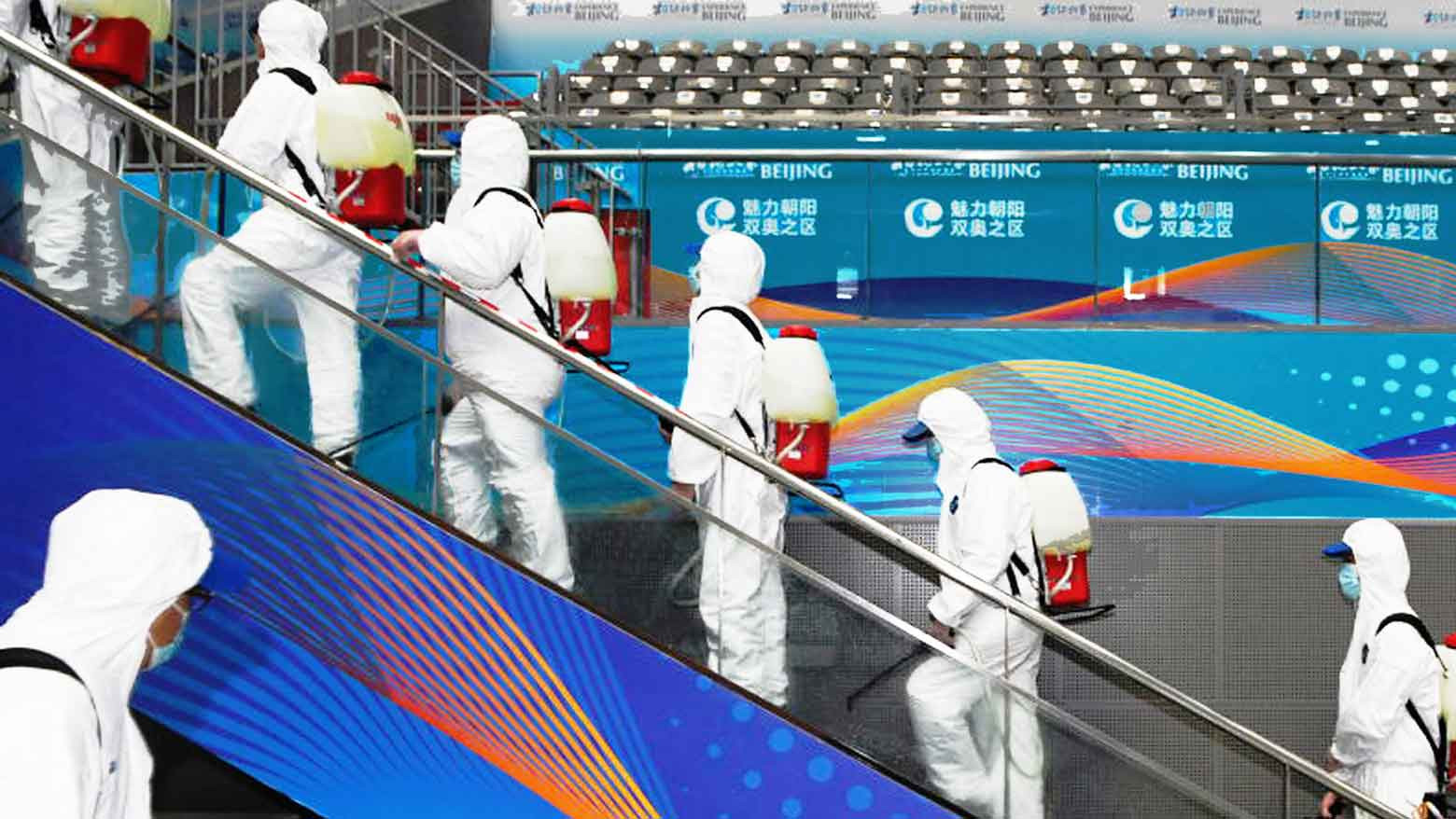Anyone visiting the Winter Olympics test events in the city of Zhangjiakou in recent weeks would have experienced first-hand how organizers plan to keep athletes and staff safe.
To enter the zone surrounding the venues, people had to show proof of a negative PCR test at police-controlled checkpoints.
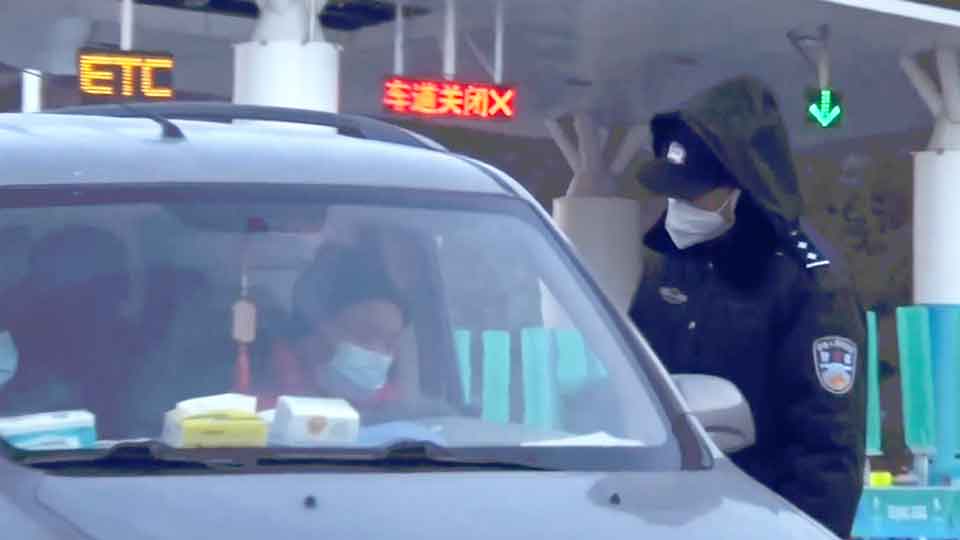
Inside the venues, members of the media were instructed to keep to designated routes and film only from areas sealed off from the competitors.
Olympic officials are banking on this kind of "bubble" system to separate the thousands of people involved in the Games from the Chinese population.
"We have improved this bubble arrangement through a series of test events," says Beijing 2022 Organising Committee official Gao Wei. "We are confident it will work throughout the upcoming Games."
Cases surge in some parts of China
But the authorities still haven't announced how many spectators they will allow in venues. China has taken an aggressive approach to the coronavirus since the original outbreak in Wuhan, with travel restrictions and contact tracing among other measures implemented.
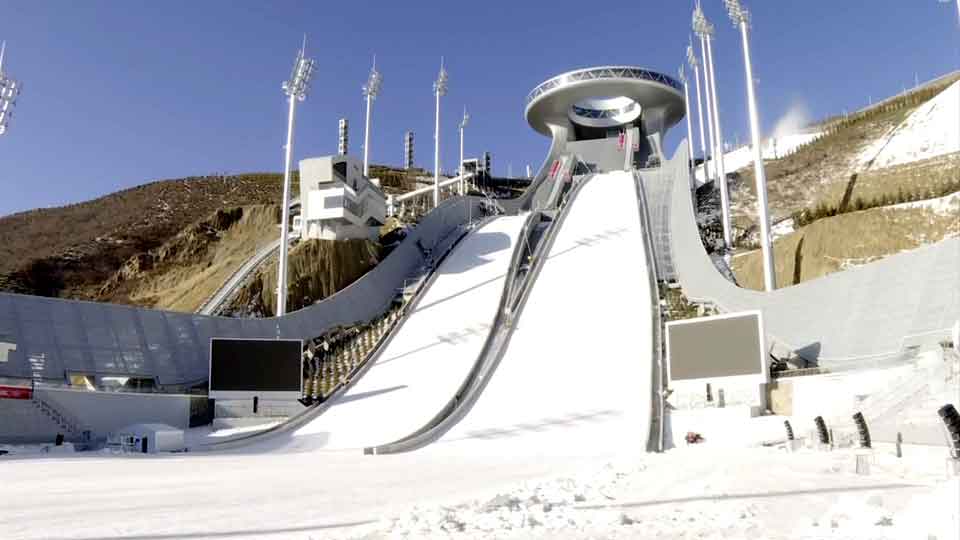
In the city of Xi'an, a population of about 13 million is currently under lockdown. Most people are not even allowed to leave their residences.
This zero-tolerance coronavirus strategy could be severely tested if spectators are permitted.
For Chinese President Xi Jinping, the Games are also a chance to fuel a winter sports boom.
"Greater public involvement in winter sports also contributes to the Olympic Movement," said Xi, in his New Year address.
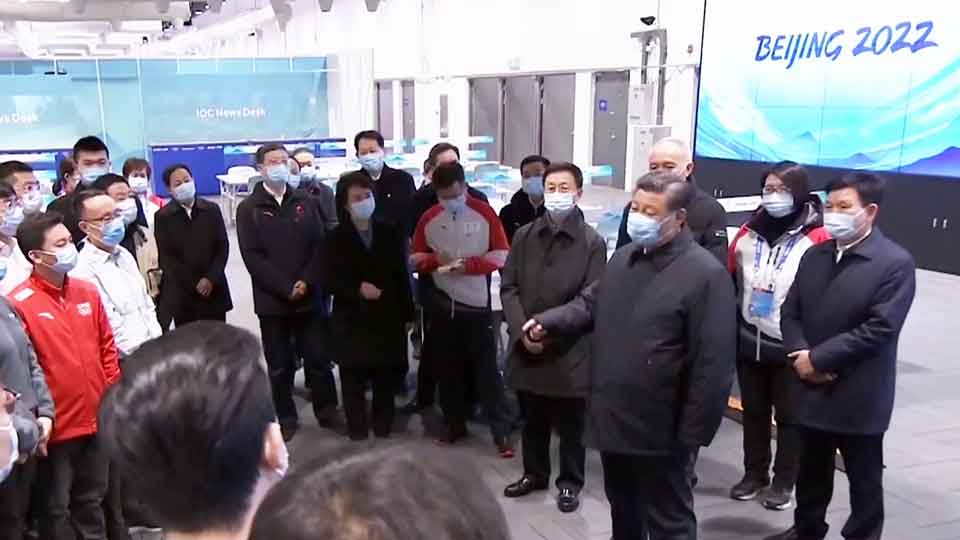
Another purpose is, of course, spurring national pride, though that objective took a hit when a series of governments announced they would not be sending high-level officials to the Games.
The US, UK, and Canada are among the nations who made that call, citing concern about human rights issues. Japan announced late last month that it would not send government delegates.
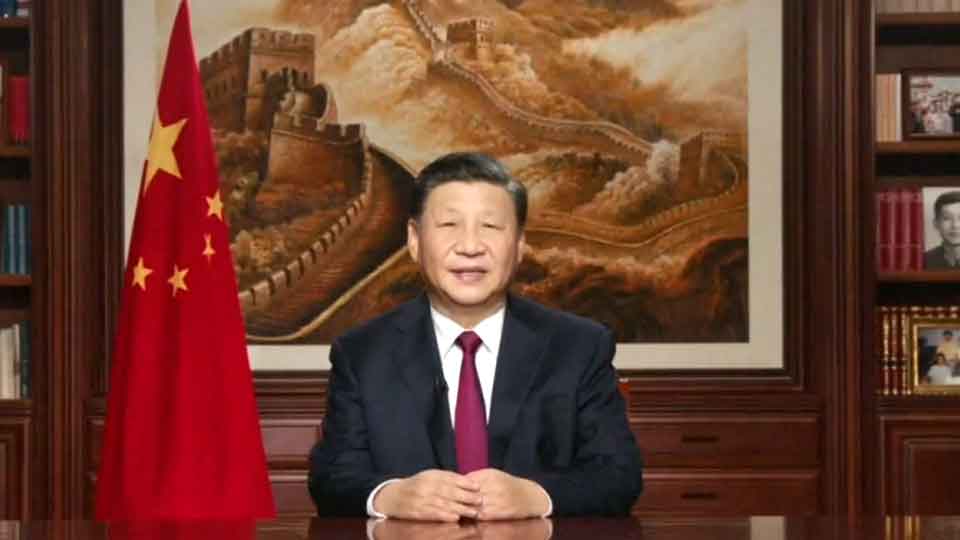
One prominent leader who is planning to attend is Russia's President Vladimir Putin. Xi exchanged New Year messages with Putin and they called for even stronger ties.
Regardless of the diplomatic maneuvering around the event, and in spite of the risks the pandemic poses, Xi appears determined to project an air of confidence and calm as the clock ticks down.
"The world is turning its eyes to China," the President said in his New Year's address. "And China is ready."
